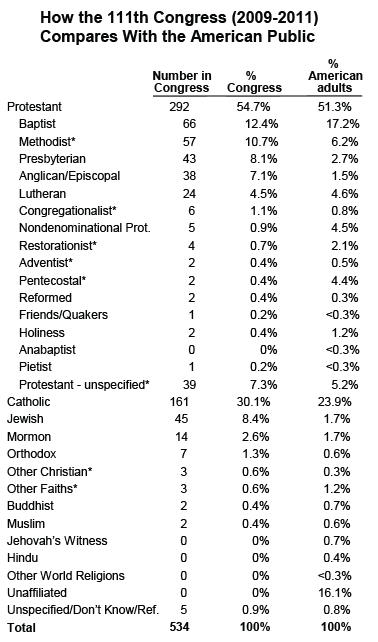Members of Congress are often accused of being out of touch with average citizens, but an examination of the religious affiliations of U.S. senators and representatives shows that, on one very basic level, Congress looks much like the rest of the country. Although a majority of the members of the new, 111th Congress, which will be sworn in on Jan. 6, are Protestants, Congress – like the nation as a whole – is much more religiously diverse than it was 50 years ago. Indeed, a comparison of the religious affiliations of the new Congress with religious demographic information from the Pew Forum’s recent U.S. Religious Landscape Survey of over 35,000 American adults finds that some smaller religious groups, notably Catholics, Jews and Mormons, are better represented in Congress than they are in the population as a whole. However, certain other smaller religious groups, including Buddhists, Muslims and Hindus, still are somewhat underrepresented in Congress relative to their share of the U.S. population.
